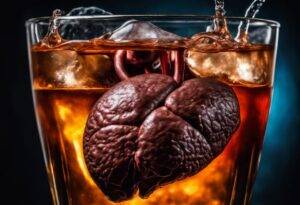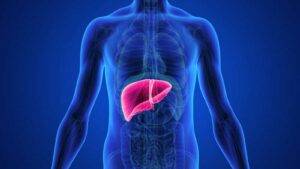We often associate body fat with its impact on physical appearance, weight management, and general health. However, the complex and fascinating connections between body fat and other aspects of our lives go far beyond these common associations. In this blog post, we will delve into 15 surprising examples that highlight how body fat influences sleep quality, psychology, sun exposure, vitamin absorption, hormonal effects, and more. Get ready to be amazed by the extensive influence of body fat on our everyday lives!
The Intriguing and Far-reaching Links Between Body Fat and Surprising Aspects of Our Lives
Just a little heads up: some of the links on this site may be affiliate links, which means if you make a purchase through them, we might get a little kickback. But don’t worry, it won’t cost you a cent extra! Think of it as the universe secretly thanking us for helping you find a great deal. Your support keeps the good vibes flowing. See AFFILIATE DISCLOSURE.
1. Sleep Quality and Body Fat:
Numerous studies have found a strong relationship between excess body fat and poor sleep quality. Individuals with higher body fat tend to experience more interrupted sleep, sleep apnea, and other sleep disorders. Excess weight can also lead to higher risks of snoring, insomnia, and restless leg syndrome, affecting both quantity and quality of sleep.
2. Psychological Factors and Body Fat:
With rising obesity rates, exploring the psychological aspects of body fat has become crucial. Research suggests a bidirectional relationship between body fat and mental health issues, including depression and anxiety. Additionally, body fat distribution can contribute to body dissatisfaction and poor self-esteem, affecting overall mental well-being.
3. Sun Exposure and Body Fat:
Did you know that body fat can affect the way our bodies interact with the sun? Studies have shown that individuals with higher body fat have lower levels of vitamin D. This is because vitamin D, a fat-soluble vitamin, is stored in adipose tissue. Lower vitamin D levels can increase the risk of bone disorders, weak immune function, and even certain types of cancer.
4. Vitamin Absorption and Body Fat:
Body fat plays a remarkable role in the absorption and distribution of essential vitamins. Fat-soluble vitamins, such as vitamins A, D, E, and K, require dietary fat for proper absorption. Individuals with extremely low body fat or those undergoing restrictive diets may struggle with vitamin deficiencies despite consuming adequate amounts.
5. Hormonal Effects and Body Fat:
Body fat acts as an endocrine organ, producing hormones that influence various bodily functions. Adipose tissue secretes hormones like leptin [Produced by fat cells, leptin is like your body’s little messenger, strolling up to the hypothalamus (the control center in your brain) and saying, “Hey, we’ve got plenty of fat stored up, no need to raid the fridge right now.”] and adiponectin, which regulate appetite, metabolism, and insulin sensitivity. [Adipose tissue is a specialized type of connective tissue in the human body that is primarily involved in energy storage, insulation, and hormone regulation. It is made up of adipocytes, which are cells that are uniquely designed for the storage and release of fatty acids. Adipose tissue is found throughout the body and is categorized into two main types: white adipose tissue (WAT) and brown adipose tissue (BAT)] Alterations in body fat levels can disrupt hormonal balance, contributing to metabolic disorders like diabetes and obesity.
6. Inflammation and Body Fat:
Excess body fat, especially around the visceral area, promotes chronic low-grade inflammation. Fat cells release inflammatory proteins called adipokines, which can interfere with insulin sensitivity, raise blood pressure, and contribute to the development of cardiovascular diseases.
7. Cardiovascular Health and Body Fat:
The link between body fat and heart health is well-established. Individuals with higher body fat percentages face increased risks of heart disease, high blood pressure, and stroke. Excessive body fat can lead to the accumulation of plaque in blood vessels, impairing circulation and increasing cardiovascular strain.
8. Mental Health and Body Fat:
Beyond body image concerns, body fat has been linked to mental health conditions such as bipolar disorder and schizophrenia. Recent studies have found correlations between higher body fat percentages and increased risk of developing these mental health disorders.
9. Nutrient Absorption and Body Fat:
Adipose tissue does more than store energy; it also plays a role in nutrient absorption. Some studies suggest that individuals with lower body fat may have impaired absorption of certain nutrients, potentially leading to deficiencies in essential vitamins and minerals.
10. Body Image and Body Fat:
The perception of body fat can significantly impact an individual’s body image. Cultural and societal influences often shape body ideals, leading to body dissatisfaction and negative self-image. Raising awareness about the diverse and natural variations in body fat distribution can help promote a healthier body image in society.
11. Immune System Function and Body Fat:
Balanced body fat levels are necessary for optimal immune function. Adipose tissue is involved in regulating the immune response, and its excess or deficiency can disrupt immune activities. Inflammatory effects of excess body fat can weaken the immune system, making individuals more susceptible to infections and diseases.
12. Bone Health and Body Fat:
Contrary to popular belief, body fat plays a role in maintaining healthy bones. Adipose tissue secretes osteocalcin, a protein involved in bone metabolism. Adequate body fat levels ensure optimal bone health, while very low body fat percentages can increase the risk of osteoporosis and fractures.
13. Fertility and Body Fat:
Body fat plays a crucial role in reproductive health. Both excessive and insufficient body fat can disrupt hormonal balance, leading to irregular or absent menstrual cycles, reduced fertility, and difficulties conceiving. Achieving a healthy body fat range is essential for ensuring reproductive wellness.
14. Hormones and Body Fat:
Hormonal imbalances can affect body fat composition, creating a complex interplay between hormones and adipose tissue. Conditions like polycystic ovary syndrome (PCOS) and Cushing’s syndrome highlight how hormonal dysregulation can alter body fat distribution and overall health.
15. Metabolism and Body Fat:
Body fat influences metabolic rate and energy expenditure. Higher body fat levels are associated with a lower basal metabolic rate, making it harder to burn calories efficiently. Conversely, losing excess body fat can enhance metabolic functioning and promote overall health.
While I do cite reputable sources, I am not a medical professional. Please use professional medical advice when making any health-related decisions. See MEDICAL DISCLAIMER.![]()
Conclusion:
Body fat’s impact extends far beyond physical appearance and weight management. From sleep quality and psychological factors to sun exposure, vitamin absorption, hormonal effects, and more, the intricate links between body fat and various aspects of our lives are astounding. Understanding these connections can help individuals make informed choices to maintain a healthy body fat range, optimize overall well-being, and foster a positive body image. So, let’s appreciate the multifaceted role body fat plays and embrace a holistic approach to a healthier lifestyle.
Unveiling the Unbelievable Connections: Body Fat’s Surprising Influence on Sleep Quality, Psychology, Sun Exposure, Vitamin Absorption, Hormonal Effects, and More
Sources:
1. National Sleep Foundation: https://www.sleepfoundation.org/articles/how-body-weight-affects-your-sleep
2. The Relationship Between Obesity and Depression: https://www.ncbi.nlm.nih.gov/pmc/articles/PMC3385208/
3. Sun Exposure and Vitamin D: https://ods.od.nih.gov/factsheets/VitaminD-Consumer/
4. Fat-Soluble Vitamins and Dietary Fat: https://www.ncbi.nlm.nih.gov/pmc/articles/PMC5320444/
5. Adipose Tissue as an Endocrine Organ: https://pubmed.ncbi.nlm.nih.gov/19064536/
6. Chronic Inflammation and Obesity: https://www.ncbi.nlm.nih.gov/pmc/articles/PMC3641016/
7. Obesity and Cardiovascular Disease: https://www.ncbi.nlm.nih.gov/pmc/articles/PMC5542778/
8. Association Between BMI and Mental Health Disorders: https://www.ncbi.nlm.nih.gov/pmc/articles/PMC3646013/
9. Malabsorption and Low Body Fat: https://www.ncbi.nlm.nih.gov/pmc/articles/PMC4371946/
10. Body Image and Body Fat: https://www.ncbi.nlm.nih.gov/pmc/articles/PMC5603210/
11. Role of Adipose Tissue in Immune Function: https://pubmed.ncbi.nlm.nih.gov/30203308/
12. Adipose Tissue and Bone Metabolism: https://pubmed.ncbi.nlm.nih.gov/25264333/
13. Obesity and Female Fertility: https://www.ncbi.nlm.nih.gov/pmc/articles/PMC3863515/
14. Hormonal Dysregulation and Body Fat: https://www.ncbi.nlm.nih.gov/pmc/articles/PMC5991977/
15. Body Fat and Metabolic Rate: https://www.ncbi.nlm.nih.gov/pmc/articles/PMC4095655/
body fat, sleep quality, psychology, sun exposure, vitamin absorption, hormonal effects, body composition, obesity, metabolism, weight loss, inflammation, cardiovascular health, mental health, nutrient absorption, body image, fat distribution, immune system, bone health, fertility, hormones

Just a little heads up: some of the links on this site may be affiliate links, which means if you make a purchase through them, we might get a little kickback. But don’t worry, it won’t cost you a cent extra! Think of it as the universe secretly thanking us for helping you find a great deal. Your support keeps the good vibes flowing. See AFFILIATE DISCLOSURE.

































































































